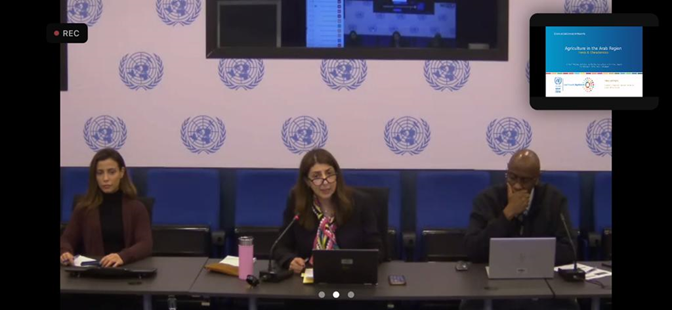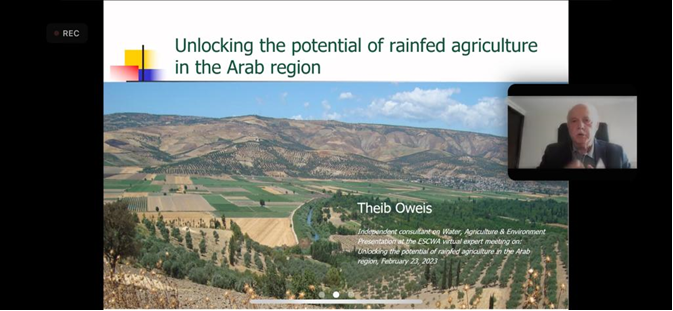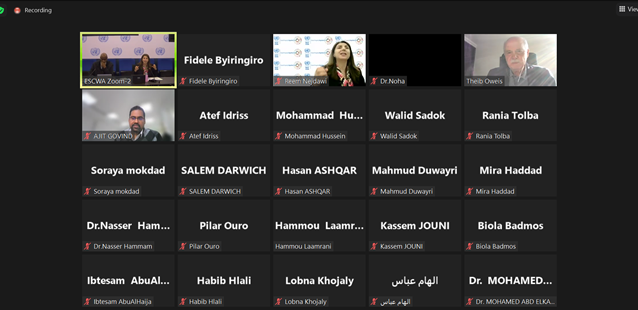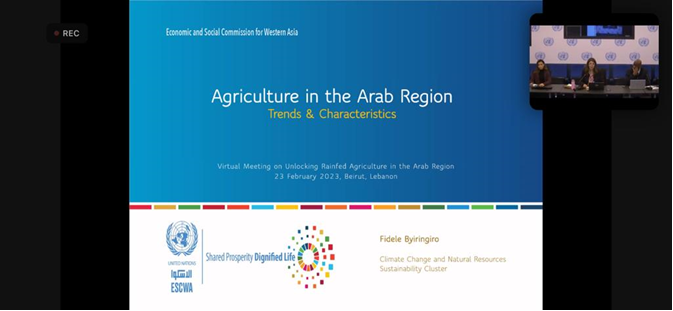Rainfed agriculture is vital to sustain rural livelihood in the Arab region. It requires low investments to achieve higher yields. However, the potential of rainfed agriculture remains largely untapped and its systems inadequate, despite the availability of adapted and well-known technologies and practices that could help boost it.
This meeting discusses the key aspects of a background report on unlocking the potential of rainfed agriculture. The report assesses the state of rainfed systems in the Arab Region and outlines ways to improve them. The meeting brings together officials from member countries, experts from national and regional institutions, civil society, research hubs and academia as well as partner United Nations agencies working in the region.




